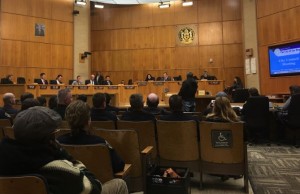 Thom Senzee, author of this article, is a West Coast-based freelance journalist, and a regular contributor to San Diego LGBT Weekly.
Thom Senzee, author of this article, is a West Coast-based freelance journalist, and a regular contributor to San Diego LGBT Weekly.
SAN DIEGO, Calif. — The San Diego City Council fell short of actions many hoped it would take Monday regarding a San Diego State University report about racially biased traffic stops executed by the city’s police department.
“The chief’s presentation fails to provide responses on how disparities will be addressed,” said American Civil Liberties Union of San Diego and Imperial Counties policy analyst, Christie Hill in her response to San Diego Chief of Police Shelley Zimmerman’s report to the council about what she plans to do to address the SDSU report’s findings. “It is time to go deeper and beyond a table of contents for trainings.”
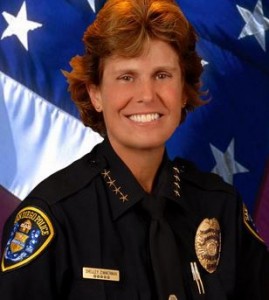
According to Hill, Zimmerman’s approach, however well intentioned, amounts to little more than a refresher course in the best practices of police-training manuals.
“Blacks and Latinos were searched more and were less likely to have contraband,” Hill said during testimony Monday afternoon before the full City Council and a crowd of about 220 members of the public. The meeting followed a closed-door session on the same subject held earlier in the day. “We have not heard from the chief why this is the case.”
The ACLU’s Hill and her counterpart at The San Diego LGBT Community Center agreed that a key element is missing from the equation that could one day help solve the problem of institutional bias at SDPD—more data.
“I’m here today to ask the City Council to require the SDPD to develop a traffic policy with input from community stakeholders which includes the LGBT community,” said Rebekha Hook-Held, director of public affairs at The Center. “…and to please require the San Diego Police Department to commit to collecting data required under AB 953, which includes sexual orientation, gender identity and expression.”
AB 953 is a law that “requires each state and local agency that employs peace officers to annually report to the attorney general data on all stops, as defined, conducted by the agency’s peace officers, and require that data to include specified information, including the time, date, and location of the stop, and the reason for the stop.”
However, the new law doesn’t require delivery of its first annual report to the state’s attorney general until 2023. According to ACLU’s Christie Hill, that’s too late. Hill suggests following state guidance advising law enforcement agencies to move now on data collection.
But that’s a suggestion Chief Zimmerman is less than enthusiastic about.
“We do not currently have an application that will collect all of the suggested data elements described in the draft regulations,” she said, adding that focusing on data could impact her personnel budget and overtime pay.
Nevertheless, ACLU’s Hill was adamant that more data is needed.
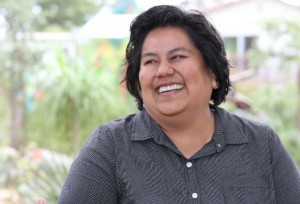
“The creation of this database does not mean that SDPD should take a wait-and-see approach,” Hill said, referring to a data-collection system that multiple law-enforcement agencies are working on now.
For now, the City Council has confidence in Zimmerman. It voted to accept the SDSU report without forcing its recommendations on her. Voting in dissent along with Councilwoman Georgette Gomez, a frustrated Councilman David Alvarez spoke out strongly against the 6-2 vote.
“The City of San Diego needs to accept this uncomfortable reality and must address it with swift and decisive action,” Alvarez said, according to the Union-Tribune.
District 3 Councilman Chris Ward was among those who supported the chief. Ward’s district includes San Diego’s historically LGBT Hillcrest neighborhood.
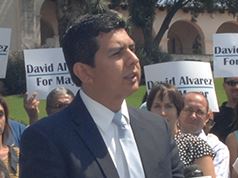
“We heard agreement from the chief that this report has helped us all to focus our scrutiny on the most troubling areas such as post-stop searches,” Ward told San Diego LGBT Weekly via email. “As I have discussed previously, including in my joint memo to the mayor regarding the 287(g) program, our law enforcement can only succeed when the community trusts our officers, and if that trust is broken, it makes things much more difficult for everyone.”
Among the many recommendations that the ACLU asked Ward and his colleagues to adopt was requiring the chief to order her officers executing traffic stops to letting people know they are not required to submit to searches without a search warrant or other extenuating circumstances, such as probable cause.
Eroding trust
But neither Ward nor his fellow city council members, except presumably the two dissenters—Gomez and Alvarez—believed requiring the chief to implement such a policy was necessary at this point.
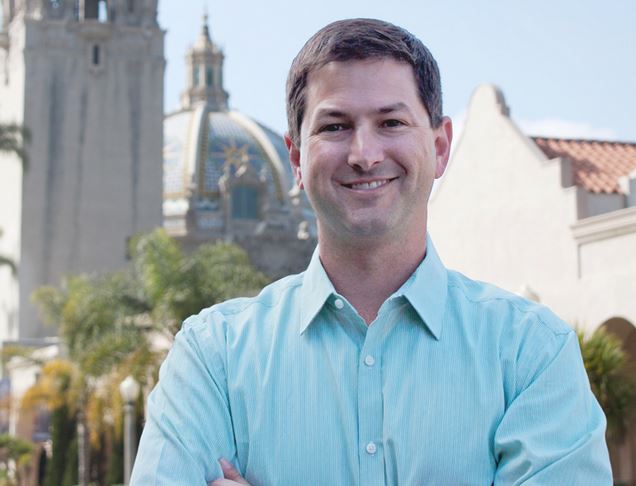
“I know Chief Zimmerman will address the concerns of council members and the public going forward to protect and rebuild that trust now that we have improved the data supporting such efforts,” said Ward. “I also know this is only a step, and as a member of the Public Safety and Livable Neighborhoods Committee, I can assure everyone that this is the beginning of closer, ongoing scrutiny to make sure we actually see results in the community.”
In fact, trust is exactly what’s needed says former city councilwoman, Marti Emerald, who originally requested the report. It was also Emerald’s famously tough grilling of Chief Zimmerman late last year when the SDSU report first illuminated how widespread the racial-profiling problem at the San Diego Police Department that first brought heightened awareness to the SDSU report.
“I don’t know what we’ll do with a chief who basically says there’s no problem,” Emerald told LGBT Weekly. “We’ve got to get away from the point of just issuing reports and get into action. This is like Back to the Future, like déjà vu all over again.”
Emerald is aware racial minorities who happen to be transgender are more vulnerable than most when they’re pulled over during a traffic stop by a prejudiced or biased officer. A 2015 report by UCLA Law School’s Williams Institute bears out her concern, noting that 48 percent of LGBT respondents who interacted with police experienced misconduct.
Emerald also believes more data is needed.
“It’s absolutely important to include the culture of the LGBTQ community,” Emerald said. “I’m hoping that the mayor’s office will fund a continuing study to keep looking at the results every year.”
An activist who identifies as a queer woman of color also testified Monday. Cat Mendonça, communications director for United Against Police Terror San Diego, described several incidents of what she characterized as racial profiling that she says she witnesses, and which UAPTSD chronicled as part of its “Cop Watch” program.
“UAPTSD has documented over 50 stops in the past three months where we feel many of them were instances where the race of the individual was stopped race was a factor in why they were stopped,” Mendonça told the council, referring members to video clips her organization had previously shared with the body.
“The following incidents, which I am summarizing…occurred in City Heights…November 30, a black man was walking with a cane down University Avenue and was stopped…he was cuffed, searched and released. Allegedly, he was swinging the cane. However, Cop Watchers did not witness this at all. No arrests were made.”
Mendonça’s testimony was a litany of similar incidents which she characterized as a de facto policy of “stop-and-frisk,” the notorious, now defunct New York City Police Department policy that gave the Big Apple’s thin blue line a reputation, whether deserved or not, of being rampantly engaged in racial profiling during the administration of former mayor, Michael Bloomberg.
Stop-and-frisk is a controversial blanket-policing method of stopping, questioning and often frisking people if officers have “reasonable suspicion” that someone is a criminal—regardless of whether or not the person was seen doing something wrong. A federal judge forced an end to the practice because, as conducted in New York, she found it violated the 14th Amendment guarantee of equal enforcement of the law because blacks and Latinos were disproportionately impacted.
The San Diego Police Department has never officially had stop-and-frisk. Nevertheless, UAPTSD described five incidents that appear to back up Mendonça’s assertion that an unspoken stop-and-frisk policy may be enforced against minorities in some parts of San Diego on a daily basis.
“On February 7, at the Starbucks on Fairmont Avenue, a black male was stopped, cuffed, searched and then released,” she testified. “Again, no arrests were made… On February 20, Cop Watchers captured video of what appears to be the San Diego Police Department breaking curb-sitting policy according to their written policy, which I’ve also forwarded to you, in the area of the 3800 block of 43rd (Avenue) in City Heights while stopping three Latino males. And, once again, no arrests were made.”
Mendonça told the council that the five incidents she described were a tiny sampling of hundreds, which she says her organization has documented, many with video.
“These stops are stop-and-frisks,” she said.
At least one former council member thinks trust in this city’s police department is suffering because of policing problems described in testimony like that of Mendonça.
“This stuff goes to the heart of the problem,” said former councilwoman, Marti Emerald. “It erodes faith in our institutions and our society like the proverbial death by a thousand cuts.”












Thank you for staying with this story. Please keep up the pressure on the Mayor, the City Council, and the Police Chief. Require continued data collection. Demand annual reporting out. San Diego has an opportunity to lead the way in California and the nation in policing that is fair and just to all our residents. That’s why we commissioned this report. To improve the quality of justice for all and restore public trust in law enforcement. In light of national politics, I believe we need to make a commitment to equal justice now more than ever! Marti Emerald